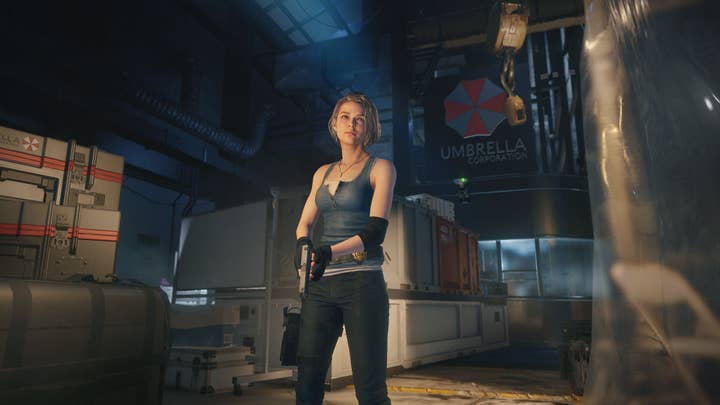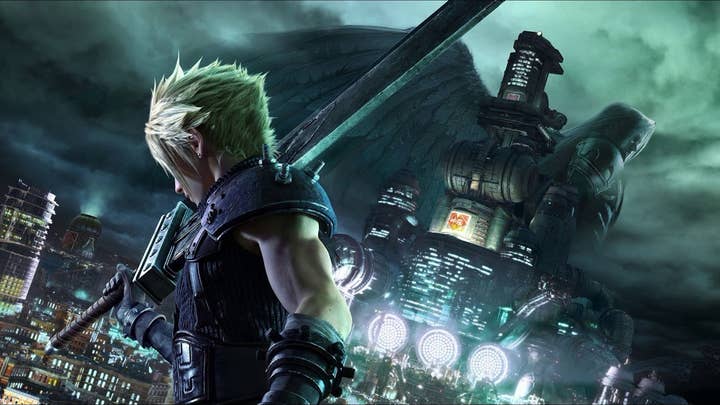The industry mines for '90s nostalgia | Opinion
Between Resident Evil 3 and Final Fantasy 7, we're playing like it's 1999 -- but few other PlayStation-era titles justify this high-budget treatment
Everything old is new again.
As with millions of people around the world, this time in self-isolation has come at a perfect moment for an indulgent binge in the games of my youth. This week I've been whiling away the evenings on Resident Evil 3 (original release, 1999, just as I was finishing high school), but I'm concerned I won't get a chance to finish it before Final Fantasy 7 (original release, 1997, and the first game I ever bought on the first games console I ever bought -- my parents had strong views on computing devices without an overtly educational value).
It's largely coincidence that these remakes of two behemoths of the late '90s have turned up at exactly this point, of course; but what isn't coincidence is the fact that the games of the PlayStation era are the focus of such intense commercial interest right now.
In no sense has the development of the Final Fantasy 7 remake been any cheaper than any other modern AAA title
These games exist at the confluence of a few factors which make them into perfect candidates for the kind of high-budget remake that Square Enix and Capcom have committed to. Their age is more or less ideal, for a start -- the generation who grew up with them is in their mid-thirties through to their early forties, which is prime territory for a first wave of middle-aged nostalgia, as I realised (somewhat uncomfortably) as I caught myself last week buying figurines of the original low-polygon Final Fantasy 7 character models to put on my desk at work.
The technological shortcomings of the original PlayStation, meanwhile, render the original games largely unplayable. Not only is it increasingly difficult to get hold of working hardware and software for them, the actual experience of playing the games, especially on a modern HDTV, is pretty jarringly unpleasant.
That creates a sweet spot of sorts. There's a huge degree of nostalgia for many of the games of the '90s, from an audience that's got a decent disposable income, but either can't or doesn't want to actually go back and play the original software. Resident Evil 3 and Final Fantasy 7's remakes aren't the first to try to capitalise on this, of course. Quite a few games of that era have been upscaled and ported to new platforms in updates of varying effort and quality over the past few years, but last year's fantastic Resident Evil 2 really opened the gates for the possibilities of really remaking older games with modern production values.

The success of these remakes will no doubt be driving a lot of publishers to flick through their own back catalogues from the late '90s and wonder what game IPs might be ripe for this kind of dramatic reworking. Any gamer of that generation can probably suggest a handful of favourite titles they'd love to see get the Resident Evil 2/3 or Final Fantasy 7 treatment -- if we're casting votes, I'd like to propose Silent Hill, Vagrant Story and Suikoden, and yes I'm keenly and mournfully aware of two of those being franchises belonging to Konami, that gruesome abattoir of beloved IPs.
We're probably not about to see a boom of similarly expensively reworked PlayStation games
But that actually reflects part of the problem with this approach. Put a dozen gamers in a room and you'll get 13 different lists of their favourite PlayStation-era games. Those that were actually universally beloved and still held in nostalgic affection are fairly rare, and even among those, only a few seem really suited to the kind of investment that a remake would demand.
That level of investment is important to recognise, because the word "remake" is deceptive. In no sense has the development of the Resident Evil remakes or the Final Fantasy 7 remake been any cheaper than any other modern AAA title. There are no significant cost savings involved in remaking a PlayStation-era game compared to making something new from scratch -- it's not like you're going to be able to use any of the assets or code, after all, and even many of the game systems and level designs are going to need to be redone with modern sensibilities.

What these remakes are, however, is somewhat less risky, since there's an existing template for a successful game -- albeit one that's going to have to be drastically reworked for modern tastes -- and an audience that's already nostalgic for the original and excited for the new experience. Removing risk is nothing to sniff at, of course, but few games of the '90s are as acclaimed and beloved as the era's Resident Evil and Final Fantasy titles, and as you begin looking into more obscure corners of the back catalogue, even that risk reduction function starts to taper off.
If an IP hasn't persisted in some form through to the current day, well, in most cases there's a pretty good reason for that
That's why, despite the success of this month's big remakes, we're probably not about to see a boom of similarly expensively reworked PlayStation games. Publishers will look into it, of course -- they would be remiss not to -- but it's vital that they are as realistic as possible and don't allow rose-tinted spectacles to fool them about the actual demand for high-budget, glossy remakes of their back catalogue titles.
In many cases, a reboot of the series is going to be a more sensible way to capitalise on the remaining wellspring of affection for an IP -- the 2016 reboot of Doom and its recent sequel being a perfect example of how to execute that particular strategy. In many others, being somewhat brutal about the line between a franchise that consumers are genuinely nostalgic about, and a franchise that they merely remember, is a crucial line between sensible investment and foolish overvaluation of back catalogue IPs.
Indeed, it's also worth noting that there's one other huge difference between Resident Evil and Final Fantasy and a large majority of PlayStation-era games that might seem like tempting remake targets -- namely the role that those remakes play in the context of their broader franchise and its ongoing value. Resident Evil and Final Fantasy are ongoing, thriving, hugely popular franchises; the remake titles serve a dual function both as major instalments within that franchise and as nostalgia-heavy reworkings of earlier games. New games within those franchises still sell many millions of copies; these remakes simply get an extra boost from the lingering affection for their original versions.
That's quite a different story from the scenario in which an old franchise is dusted down and remade with a "hey, remember this!" flourish. If an IP hasn't persisted in some form through to the current day, well, in most cases there's a pretty good reason for that -- and any attempt to kickstart a modern franchise from the ashes of an old one should include a sharply honest assessment of why the old one burned down in the first place.

